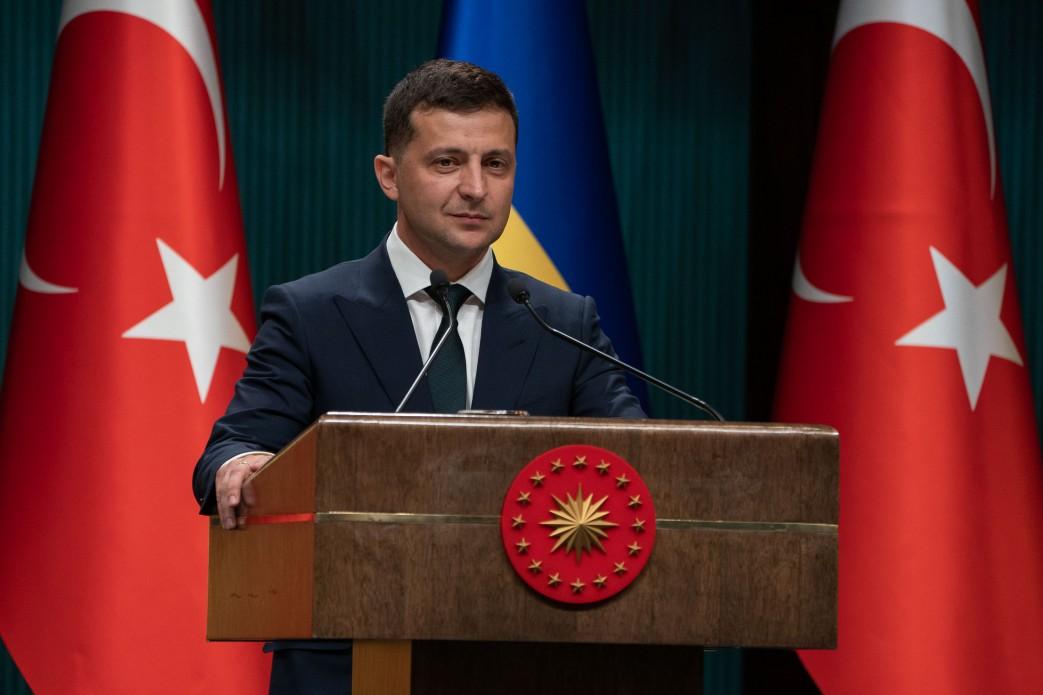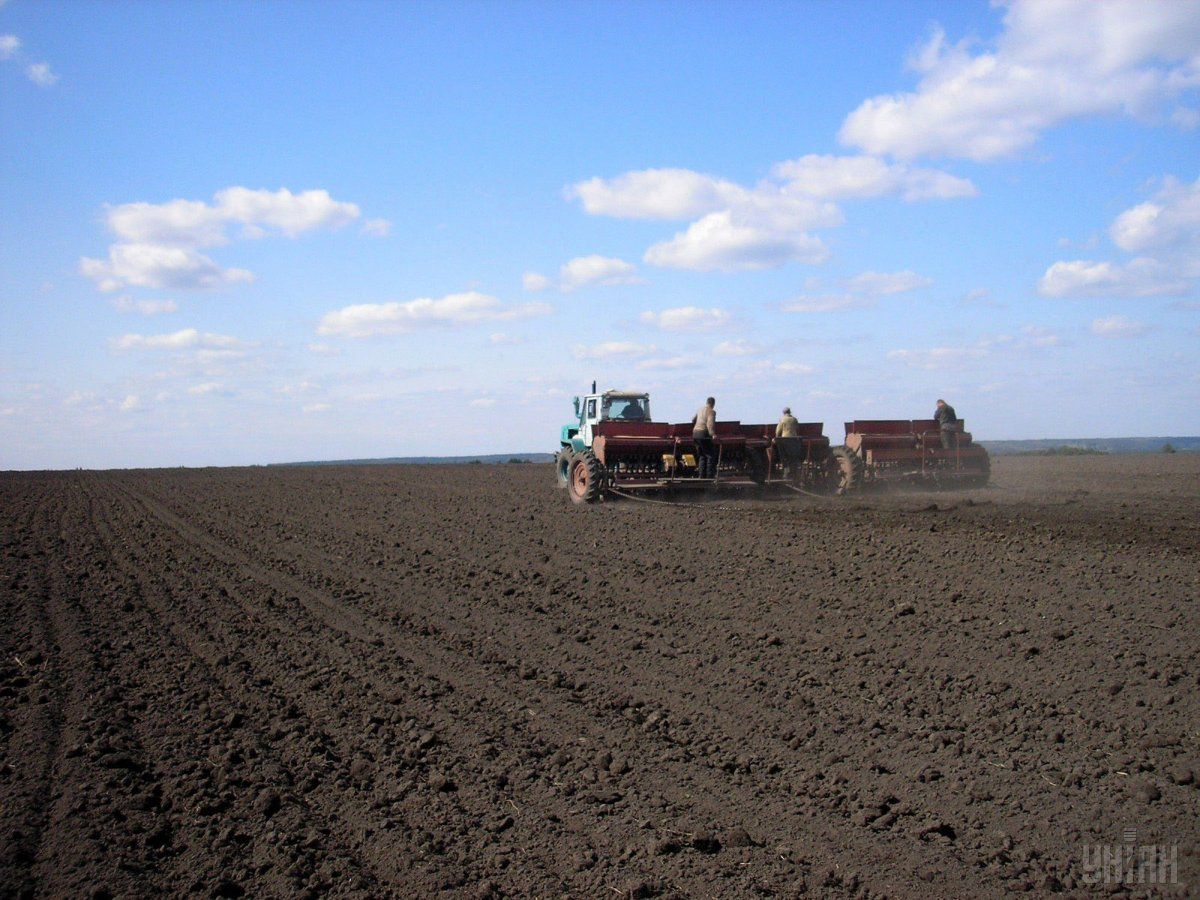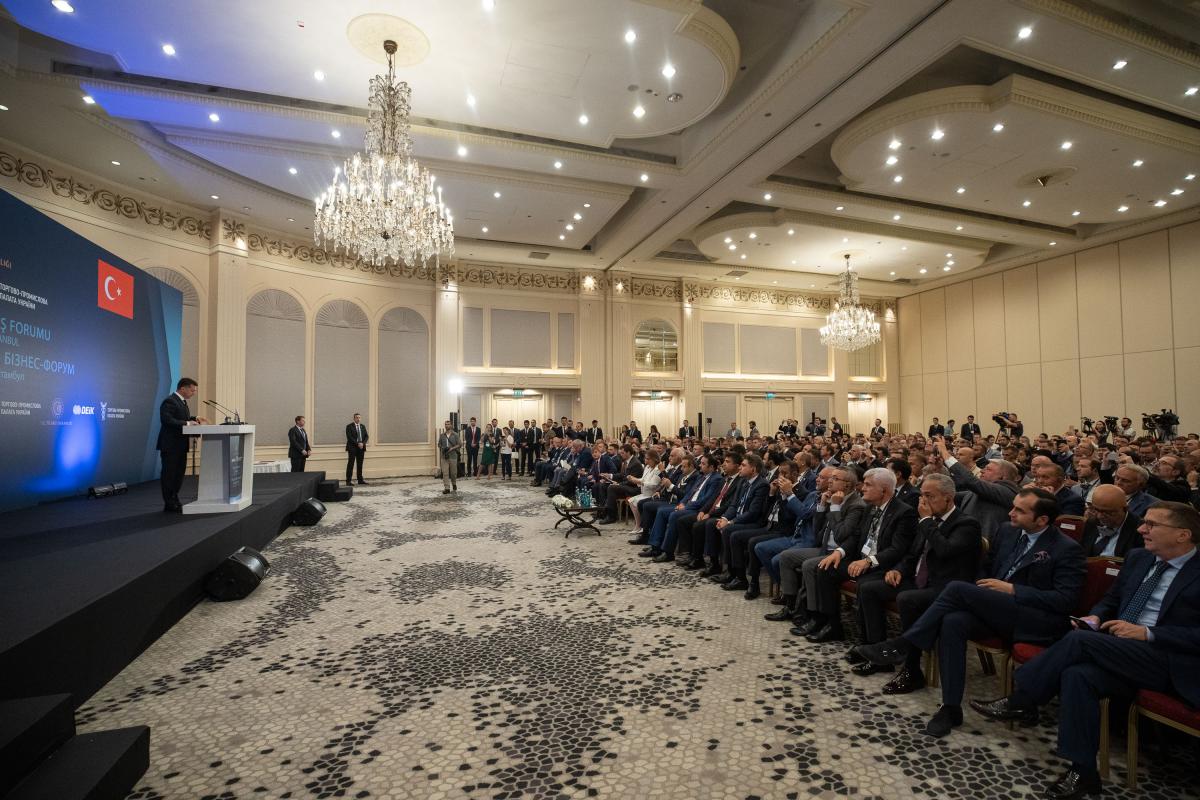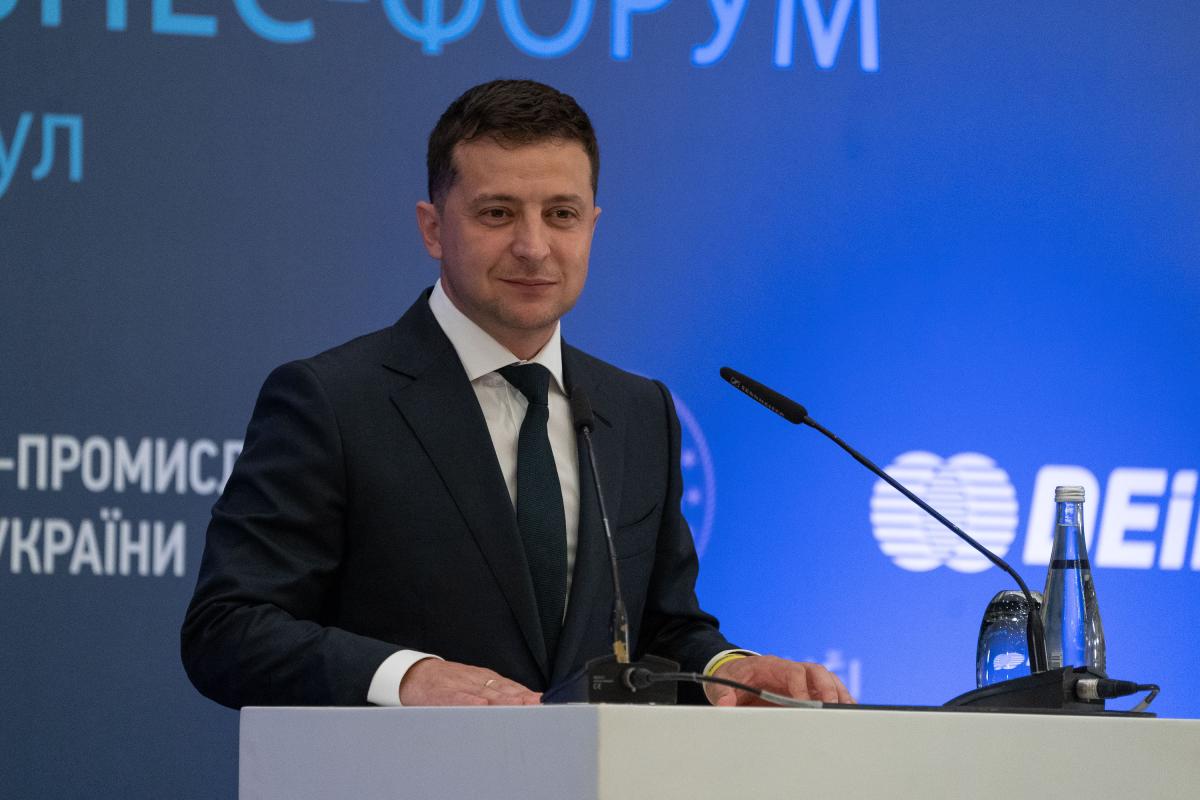
New Old Reform: What economic changes are coming to Ukraine
President Volodymyr Zelensky announced the priority steps of Ukraine authorities to boost economic development. UNIAN has learned about the expected transformations awaiting the country in the near future.
President Volodymyr Zelensky during his two-day official visit to Turkey, where he met with his counterpart Recep Tayyip Erdogan, also spoke at the Ukrainian-Turkish business forum. The event is designed to enhance cooperation between the two countries and tell potential investors of the Ukrainian economy's prospects. At the forum, the president announced the priority steps to be taken to make Ukraine especially attractive for investments. This is the opening of farmland market in 2020, large-scale privatization over the next five years, setting up competitive rules in the markets, easing of doing business, including the adoption of concession law as early as this year. According to Zelensky, all this will turn Ukraine into a "magnet for investment."
"In the next five years, Ukraine will change dramatically. Our economy will grow by five to seven percent," Zelensky said.
Given the fact that for the first time in Ukraine's modern history, a mono-majority will be formed in Parliament by a pro-presidential party "Servant of the People", there will be no problem for deputies to pass legislation submitted by President Zelensky. And this means that nothing should hinder the implementation of ambitious plans in the Verkhovna Rada.
Land reform

The first and most important announcement coming from the president is that this year land reform will finally be carried out in Ukraine. It paves way for the opening of the land market as early as 2020.
"This year we will definitely carry out land reform, which next year will create a land market worth 40 million hectares of land, which is one of the best ones in the world in terms of quality," Zelensky said, adding that Turkish companies owning land are already working in Ukraine.
"I hope that there will be significantly more of such companies, especially in the southern part of Ukraine, where there is a need for the creation and development of melioration systems. Here we also consider opportunities for public-private partnerships," Zelensky said.
The saga of the moratorium on farmland sales began in 2001 when the Verkhovna Rada adopted a law which established that, temporarily, until the adoption of the Land Code, land plot owners cannot sell, donate or otherwise alienate their plots. The legislation only allowed transferring plots to heirs and selling it for state and public needs. The Land Code was adopted in the same year. And suddenly, with reference to this very Code, MPs established that the ban must be extended until January 1, 2005, with land plots allowed to only be exchanged, inherited, or sold for public purposes. Since then, the moratorium has been continuously extended; now it is valid until 2020.

However, as of today, a lot has been done toward implementing land reform: a law has been adopted on land consolidation, a land cadaster and a register of property rights have been launched, and data exchange has even been established between them. The whole snag is about the law on land circulation, which, by design, should provide transparent rules in the market. Its adoption requires political will, which both to the government and people's deputies were lacking earlier. Moreover, both claim that the market needs to be opened and that this would be advantageous to the economy, but there is one reservation: it is impossible to do this without the legislative framework: a vicious circle where a market is a necessary thing, but there are no laws, about which legislators themselves keep complaining...
The EU and the IMF have long insisted on opening the land market. Ukraine has undertaken this obligation both in the Association Agreement with the European Union, and in the Memorandum of Cooperation with the IMF. The European Court of Human Rights in its verdict said the moratorium violates the European Convention on Human Rights. This decision was made in the Zelenchuk and Tsitsyura vs Ukraine case. The court held that the state had not ensured a fair balance between the interests of the public and the property rights of the applicants. The ECHR threatened that if the moratorium was extended, it would award compensation for the claimants' property losses. So far, the court refrained from such actions in the hope that the recommendations would be heard. ECHR decisions are binding for Ukraine. The Ministry of Justice has already stated that compensation could ultimately amount to billions of dollars, as there are about seven million landowners whose rights are violated by a moratorium. Meanwhile, according to the World Bank, the lifting of the moratorium would bring the economy some $0.7-1.5 billion annually.
Head of the Office of Effective Regulation, Denys Malyuska, believes that in order to launch the land market, it is first necessary to adopt a bill to counter raiding and ensure equal access to financing for all market participants.
"For our part, we put forward several conditions for the land market to work successfully. One of these conditions is a successful fight against raiding; this is partly a matter of the Ministry of Justice. Since, if you leave things as they are, launching a land market would mean a significant increase in seizures and unlawful activity, so we are working on an anti-raider bill," Malyuska said.
According to him, before launching the land market, it is necessary to create an institution that would provide equal access to financing for all market participants, as well as strengthen the work of the State Service for Geodesy, Cartography and Cadaster, making the implementation of procedures more efficient.
Meanwhile, the National Bank praised Zelensky's announcement and said that they were ready for the opening of the land market, since land could become an additional asset for the provision of loan collaterals.
"Land is an asset. The banking system is ready to work with land. For the banking system, this reform will be a good step, as there is an additional asset that can act as a collateral for a loan," said NBU Deputy Head Dmytro Solohub.
He described the current situation with land reform as "an example from a macroeconomy textbook": "This market already exists. However, this market remains in the shadows. That is why land prices are warped. The reform will restore order."
Large-scale privatization

Another important statement made by Zelensky was that Ukraine in the next five years will carry out large-scale privatization, which has long failed to launch.
"We will carry out a large privatization and sell hundreds of interesting objects to efficient investors," Zelensky said.
Members of the president’s team also announced a new stage in large-scale privatization to attract international banking institutions.
"State banks should be sold first. I would like 10 major systemic banks to enter Ukraine. To this end, we need to demonstrate economic growth, independence of the banking regulator, the National Bank, and to fix the judiciary," Oleksiy Honcharuk, deputy head of the Presidential Office, told Bloomberg.
He added that, in the longer term, the sale of Ukrzaliznytsia and Ukrposhta is also being considered.
It is worth noting that last year a new law was adopted on the privatization of state and municipal property. It was expected that it would help start a large-scale process of state property sales on civilized, European principles. Privatization itself was divided into two blocks – small and large. The objects of large privatization include unified property complexes of state and communal enterprises and shareholdings of joint-stock companies where the state owns more than 50% of the shares, as well as the assets worth more than UAH 250 million over the past year. All other objects are included in the list of small privatization. These assets should be sold exclusively at electronic auctions. Features of the sale of communal-owned large-scale privatization facilities may be established by local councils.
In July 2018, the Ministry of Economic Development and Trade reached an agreement with the State Property Fund on controversial issues regarding small privatization and unblocked the sale of small state assets.
It seems that everything has been formed to start large-scale privatization, on which the country's main creditor, the International Monetary Fund, insists. But it's only "small" assets that are being sold so far, while large privatization is remains in a stupor. And the target for budget revenues to be derived from privatization just can't be met.
In 2018, target revenues from large-scale privatization were set at UAH 22.5 billion and then reduced to UAH 21.3 billion. The government planned to sell packages of 26 state facilities, but by the end of the year, only Centrenergo was on the table. However, even this company's sale never happened. As a result, the treasury received only UAH 2.3 million.
In previous years, the situation was no better. Since 2015, the privatization revenue plan has consistently amounted to UAH 17 billion. But in 2017, the budget received only UAH 3.4 billion, in 2016 it was UAH 188 million, and in 2015 it was UAH 151.1 million. In the state budget for 2019, UAH 17.1 billion of privatization revenues have been laid down once again, and the previous authorities assured that it was quite possible to fulfill the plan by the middle of the year...
Making business more attractive in Ukraine

When inviting Turkish businesses to Ukraine, Zelensky promised to make doing business conditions in Ukraine more attractive. In particular, it's about adopting this fall a law on concession.
"In autumn, we will pass a concession law, which will allow the state to work safely with the private sector, with private companies," the president said. "We will be very glad to see Turkish companies as truly reliable partners in our projects. You are welcome to enter with your capital, your experience, your technology."
The law "On Concession" was adopted in first reading in April last year. It provides for the possibility of applying such cooperation in any sphere of economic activity, and speaks of a clear distinction between the regulation of cooperation and other forms of implementing public-private partnerships. The document also provides for the introduction of a transparent procedure for selecting a concessionaire, the possibility of attracting advisers and independent experts to prepare public-private partnership projects in the form of a concession, additional guarantees for concessionaires and creditors, in particular, the concession agreement provides for the right to replace the concessionaire, simplifying the procedures for allocating land for projects of public-private partnership in the form of a concession.
And most importantly, it allows transferring the resolution of disputes to international commercial or investment arbitration and a clear mechanism for monitoring the implementation of agreements.
This news from Zelensky was positively received at Naftogaz. The head of the state-owned company, Andriy Kobolyev, believes that this is more likely to allow the transfer of the gas transmission system of Ukraine to the management of a consortium of international companies.
"The president in Turkey gave a very important signal, saying that this fall a law on concessions will be adopted, which will simplify the cooperation of the state with private businesses. This means that one of the main options for the functioning of our GTS after the unbundling of the operator becomes more likely," he wrote on Facebook.
At the same time, Kobolyev explained that Naftogaz had repeatedly talked about the prospects of transferring control of the Ukrainian GTS to a consortium of international companies, especially if Gazprom takes an unconstructive position in transit negotiations, as the transit contract expires on January 1, 2020.
"Today we're seeing that the Russians are determined to postpone the start of negotiations in order to resort to blackmail and arm twisting once again with the onset of cold weather. Therefore, it is especially important now to correctly and without errors complete the unbundling according to the optimal ISO (Independent System Operator) model that we have been working on in recent years," said Kobolyev.
According to him, only this model will provide an opportunity to further protect the interests of Ukraine in litigations with the Russian gas monopoly and at the same time fully comply with the requirements of the European gas directive.
As for facilitating doing business in Ukraine, there is a more or less positive trend. According to the Ministry of Economic Development, Ukraine has ranked second in the world in terms of growth in the Doing Business rating since 2009, and since 2014 it has risen by 41 positions. Due to deregulation alone, Ukraine has already allowed entrepreneurs save more than UAH 1 billion annually. In Doing Business-2019, Ukraine rose from the 76th line to the 71st spot among 190 countries.

In addition, over the past three years, the government has repealed about 1,300 obsolete acts that created unnecessary pressure on businesses. The effect of deregulation in 2018 is the simplification of doing business for about 100,000 retail entities, about a thousand companies and more than 10,000 private entrepreneurs dealing with household goods repair, 6,300 companies working in engineering and search, and more than 6,700 construction companies.
The Ministry of Economic Development believes that further progress requires support from the Verkhovna Rada. It is about the adoption of bills that will allow get into the TOP 50 of Doing Business.
By the way, Zelensky also contributed to facilitating the work of businesses. He has already canceled 167 decrees, among them 61 decrees in the economic sphere, which were issued from 1991 to 2000.
Staying on the right track
Experts believe that the plans voiced by the president are most likely realistic. The main thing is not to change priorities.
"I'm absolutely sure that Zelensky will be able to launch two fundamental processes in 2020 – land market and large-scale privatization. The question is how long these projects will reach their cruising speed. It is necessary to understand that simply due to the fact that Ukraine announced large-scale privatization, investors will not instantly line up. Still, in order to realize the success of future processes, it is necessary to know the composition of the government and at the same time the Cabinet's action plans. Now we're seing neither," said financial analyst Vitaliy Shapran.
At the same time, in his opinion, both large-scale privatization and the opening of the land market are very real things, as well as the adoption of the concession law: "I expect that all processes will go faster."
Serhiy Fursa, an expert with Dragon Capital, also believes that the plans announced by Zelensky may well come true.
"Nothing stands in Team Zelensky's way to realize their plans. Everything listed by the president is possible," the expert summed up.
Director of the Economic Discussion Club, Oleh Pendzin, has a different opinion. He doubts that in four months Zelensky will be able to turn the tide to achieve his goals in 2020.
"What can be changed in four months? Eradicating corruption in courts, banning security agencies from meddling in business? We already have the relevant laws, but nothing changes. Besides, don't confuse investors with financial speculators who buy Ukrainian domestic loan bonds at a yield of 17% per annum. And this is while the German Ministry of Finance issues German government bonds at -0.002%. And the land market is another epic. Although it is unclear who will have the right to purchase it, what are the guarantees for the land to remain in agricultural circulation, how many plots will be allowed per buyer… There are no laws yet," the expert emphasized.
As for privatization, he said that the main problem in this area is demand for assets. The will to sell is not enough. "Every year, the inflow of foreign direct investment decreases, and it is unlikely that something will change quickly," summed up Pendzin.
Indeed, the volume of foreign investment in Ukraine is declining, and it's not the first year that we're seeing this. And the increase in direct investment in the first quarter of this year amounted to only $45.5 million against $1.1 billion on year. These dry numbers indicate that the investors are in no hurry to bring investments to Ukraine. Of course, the main reason for this is the war in Donbas. But investors are also constrained by the slow implementation of reforms, especially in judiciary, poor protection of private property, and other flaws in the Ukrainian economy. Therefore, it is very important that the new government succeed in turning the tide.
Nana Chornaya

